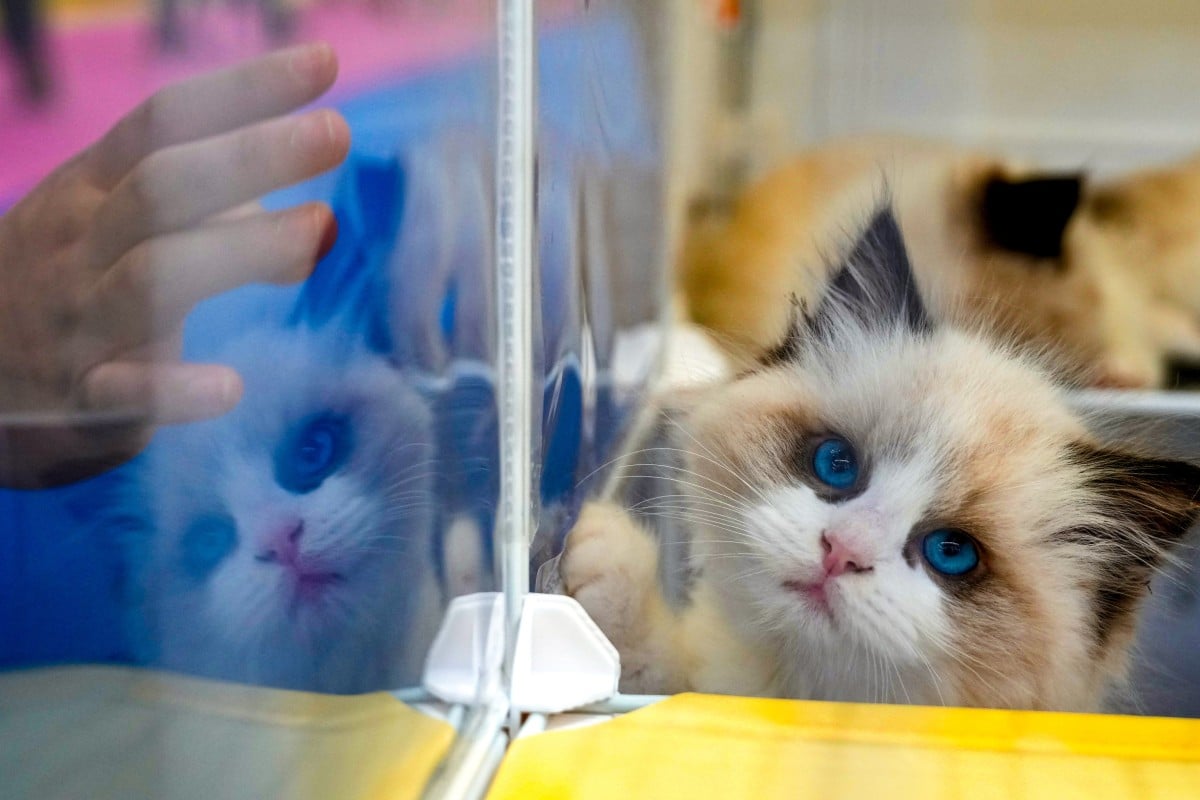
Spark Study Buddy (Challenger): Hong Kong slashes quarantine for cats and dogs from Macau
The story on this page has some tougher vocabulary words and questions to improve your understanding and English grammar
 Hong Kong authorities will no longer require pets from Macau to quarantine for 120 days. Now, they must complete a 30 day quarantine. Photo: Sam Tsang
Hong Kong authorities will no longer require pets from Macau to quarantine for 120 days. Now, they must complete a 30 day quarantine. Photo: Sam TsangContent provided by British Council
[1] Hong Kong recently slashed the quarantine period for cats and dogs imported from Macau from 120 days to 30. The relaxed rule will likely expand to cover mainland China later. The Agriculture, Fisheries and Conservation Department (AFCD) announced the new quarantine arrangements for imported cats and dogs last month. Macau is the first location with a higher risk of rabies added to a new Group IIIA category list.
[2] As of December 1, the quarantine period for cats and dogs imported from Group IIIA places has been shortened from 120 days to 30 days upon their arrival in Hong Kong. The department is also speaking to authorities on the mainland about whether it will be included in the new arrangements. More announcements will be made later.
[3] Previously, pets arriving from Macau and the mainland, which are considered areas at a high risk of rabies, had to undergo 120 days of quarantine before being allowed entry. Applicants wishing to import cats and dogs from places under the new group must meet specific requirements. Their pets must have been implanted with a conforming microchip and hold valid vaccination certificates against rabies and other infectious diseases.
[4] The animals should have a satisfactory rabies-neutralising antibody titre test result from a laboratory. They also need an animal health certificate issued or endorsed by a government veterinary officer.
[5] Hong Kong classifies places into different groups according to rabies risks. Group I places include Australia, Japan and Britain, where rabies has been absent for a long time. Pets from these locations are exempt from quarantine after they are above two months old, vaccinated and microchipped.
[6] Places where rabies cases are few and under control are classified as Group II, which include Taiwan and Canada. Pets from these areas will have their quarantine waived if they are vaccinated and chipped at the age of five months. Previously, places not included in the two groups were designated as Group III. This was the highest-risk tier, with mandatory 120-day quarantine for these pets.
[7] Group IIIA includes places that do not meet the requirements to be included in Group II but have satisfactory regulations of veterinary services and official controls on health certification. Places where rabies cases are reported and not under effective control are designated as Group IIIB, and the quarantine period for imported cats and dogs is no less than 120 days.
Source: South China Morning Post, November 26
Questions
1. In paragraph 1, what is the recent change in Hong Kong’s quarantine policy for imported pets?
2. What does the department in paragraph 2 refer to?
3. Find a word in paragraph 4 that refers to “an official document that gives details to show that something is true”.
4. According to paragraph 5, pets from Group 1 places need to be … before they can be exempted from quarantine.
A. microchipped
B. vaccinated
C. above two months old
D. all of the above
5. Places that fall under Group II … according to paragraph 6.
A. have zero cases of rabies
B. have few cases of rabies
C. perform rabies vaccination on all pets
D. microchip all pets before they turn five months old
6. Match the cause with its corresponding effect. (3 marks)
Cause
(i) Hong Kong reclassified Macau as a Group IIIA place.
(ii) Hong Kong has implemented stricter quarantine measures.
(iii) Cats and dogs from Group I places are from rabies-free areas.
Effect
(a) The number of rabies cases in Hong Kong is reduced.
(b) The quarantine period for pets from Macau was reduced to 30 days.
(c) They are exempt from quarantine.
Answers
1. The quarantine period for cats and dogs from Macau has been reduced from 120 days to 30 days.
2. the Agriculture, Fisheries and Conservation Department
3. certificate
4. D
5. B
6. (i) b; (ii) a; (iii) c
